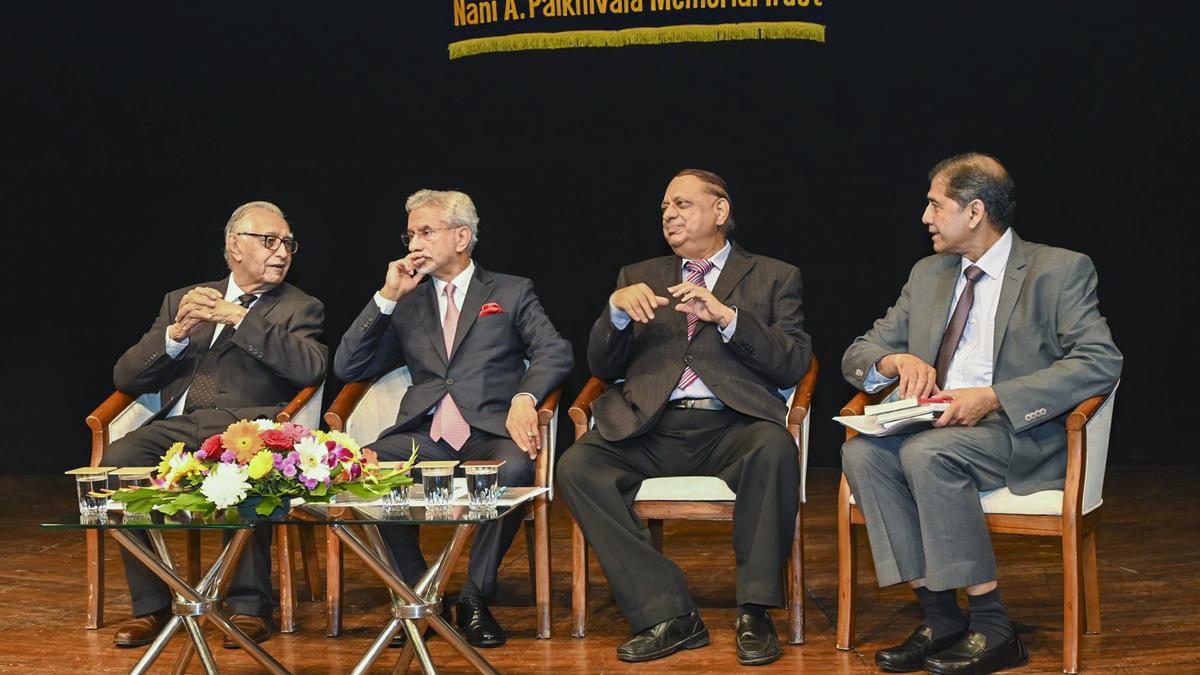
Cancer of terrorism is consuming Pakistan’s body politic: Jaishankar
The Hindu
Jaishankar criticizes Pakistan for supporting terrorism, emphasizes India's need to prepare for China's growing capabilities.
Pakistan’s support of cross-border terrorism is like a cancer, External Affairs Minister S. Jaishankar said on Saturday (January 18, 2025).
“Pakistan remains the exception in our neighbourhood in view of its support for cross-border terrorism, and that cancer is now consuming its own body politic. Obviously, the entire sub-continent has a shared interest in Pakistan abjuring that approach.” Mr. Jaishakar said, while delivering the 19th Nani A. Palkhivala Memorial Lecture.
India also needs to prepare itself for China’s growing capabilities, the Minister said. “Right now, the relationship is trying to disentangle itself from the complications arising from the post-2020 border situation. Even as that is being addressed, more thought needs to be given to the longer-term evolution of ties,” he said. “Clearly, India has to prepare for expressions of China’s growing capabilities, particularly those that impinge directly on our interests. To hold up its own end, a more rapid development of India’s comprehensive national power is necessary. This is not just about correcting the earlier neglect of the border infrastructure and oceanic periphery, but also in mitigating dependence in sensitive domains. There could naturally be practical cooperation, undertaken with due diligence,” he added.
India faces a particular challenge in establishing an equilibrium with China, Mr. Jaishankar said. “Much of that arises from the fact that both nations are on the rise. As immediate neighbours and the only two societies with over a billion people, their dynamic could never have been easy. But it has been further sharpened by a boundary dispute, by some baggage of history and by differing socio-political systems. Misreadings by past policymakers, whether driven by idealism or absence of realpolitik, has helped neither cooperation nor competition with China. That has clearly changed in the last decade,” he said.
Outlining the global challenges created by the weaponisation of market instruments and financial institutions, Mr. Jaishankar said, “The challenge for India is to undertake its rise in such unpredictable circumstances. To do that, it has to accelerate both its internal growth and modernisation, as well as de-risk its external exposure. At home, that is best done through political stability, broad-based growth and inclusive growth, and continuing reforms. It means more focus on manufacturing as well as food and health security, while building the deep strengths that would make us competitive. Strategic autonomy, after all, is acquiring greater economic connotations.”
Mr. Jaishankar reiterated India’s growing global relevance and emphasised that it can be attributed to strong political leadership. “A successful election with a renewed mandate for a third term clearly caught the world’s attention,” he claimed.
Highlighting India’s friendly relationship with Sri Lanka, he said, “India’s challenge has been to rebuild the neighbourhood in the aftermath of the Partition. It is now doing so through a generous and non-reciprocal approach, funding and supporting energy, rail and road connectivity, expanding trade and investment and intensifying exchanges and contacts.”













